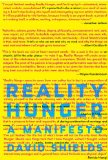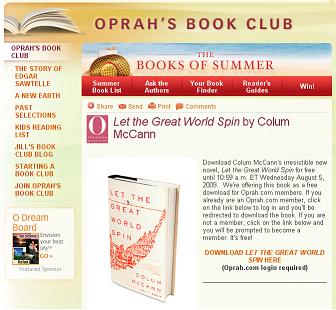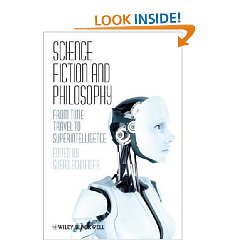February 23, 2010

Reality Hunger: A Manifesto by David Shields (Knopf, 2010)
(link for UK)
An open call for new literary and other art forms to match the complexities of the twenty-first century.
Reality TV dominates broadband. YouTube and Facebook dominate the web. In Reality Hunger: A Manifesto, his landmark new book, David Shields (author of the New York Times best seller The Thing About Life Is That One Day You’ll Be Dead) argues that our culture is obsessed with “reality” precisely because we experience hardly any.
Most artistic movements are attempts to figure out a way to smuggle more of what the artist thinks is reality into the work of art. So, too, every artistic movement or moment needs a credo, from Horace’s Ars Poetica to Lars von Trier’s “Vow of Chastity.” Shields has written the ars poetica for a burgeoning group of interrelated but unconnected artists in a variety of forms and media who, living in an unbearably manufactured and artificial world, are striving to stay open to the possibility of randomness, accident, serendipity, spontaneity; actively courting reader/listener/viewer participation, artistic risk, emotional urgency; breaking larger and larger chunks of “reality” into their work; and, above all, seeking to erase any distinction between fiction and nonfiction.
The questions Reality Hunger explores—the bending of form and genre, the lure and blur of the real—play out constantly all around us. Think of the now endless controversy surrounding the provenance and authenticity of the “real”: A Million Little Pieces, the Obama “Hope” poster, the sequel to The Catcher in the Rye, Robert Capa’s “The Falling Soldier” photograph, the boy who wasn’t in the balloon. Reality Hunger is a rigorous and radical attempt to reframe how we think about “truthiness,” literary license, quotation, appropriation.
Drawing on myriad sources, Shields takes an audacious stance on issues that are being fought over now and will be fought over far into the future. People will either love or hate this book. Its converts will see it as a rallying cry; its detractors will view it as an occasion for defending the status quo. It is certain to be one of the most controversial and talked-about books of the year.
There’s already lots of response to this book, so here is a link to the latest Google news search results.
See also: Author’s website
Comments (0)
- culture,fiction,new books,reality
October 24, 2009
“It was all in your mind,” Chade told me sometime later, and it stung that he dismissed so lightly all that I had endured. All of life, I wanted to tell him, is in our minds. Where else does it take place, where else do we add up what it means to us and subtract what we have lost? An event is just an event until some person attaches meaning to it.
— Fool’s Fate (The Tawny Man, Book 3) by Robin Hobb (Bantam Spectra, 2004), p 286 (link for UK)
Comments (0)
- fiction,mind
August 3, 2009
Let the Great World Spin by Colum McCann is available as a free download in pdf format from Oprah.com until 10:59 a.m. ET Wednesday August 5, 2009. (Site registration is required.)

More on Let the Great World Spin:
New York Times review
Author’s website
Let the Great World Spin at Amazon.com
Comments (0)
- fiction
July 21, 2009
Alternate Minds: Cognitive Science Fiction and Philosophy is a cool new blog from Pete Mandik, who describes its aim:
…to explore science fictional permutations of the concept of mind (and related concepts such as intelligence, perception, selfhood). By entertaining speculative scenarios wherein the target concepts are bent almost beyond recognition, we gain insights into the nature of mind and catch glimpses of new possibilities. Initial investigations will be clustered around seven key themes: Virtual Minds, Infinite Minds, Group Minds, Time-traveling Minds, Hyper-spatial Minds, Quantum Minds, and Anti-Minds.
Comments (0)
- cognitive science,fiction,philosophy of mind
June 7, 2009

Two of my favorite realms of reading meet in Science Fiction and Philosophy: From Time Travel to Superintelligence ed. by Susan Schneider (Wiley-Blackwell, 2009). A “look inside” at the table of contents shows a lineup of authors that includes Daniel Dennett, David Chalmers, Andy Clark, Derek Parfit, David Lewis, and Ray Kurzweil.
Product description from the publisher:
A timely volume that uses science fiction as a springboard to meaningful philosophical discussions, especially at points of contact between science fiction and new scientific developments.
* Raises questions and examines timely themes concerning the nature of the mind, time travel, artificial intelligence, neural enhancement, free will, the nature of persons, transhumanism, virtual reality, and neuroethics
* Draws on a broad range of books, films and television series, including The Matrix, Star Trek, Blade Runner, Frankenstein, Brave New World, The Time Machine, and Back to the Future
* Considers the classic philosophical puzzles that appeal to the general reader, while also exploring new topics of interest to the more seasoned academic
Comments (0)
- fiction,new books,philosophy of mind




